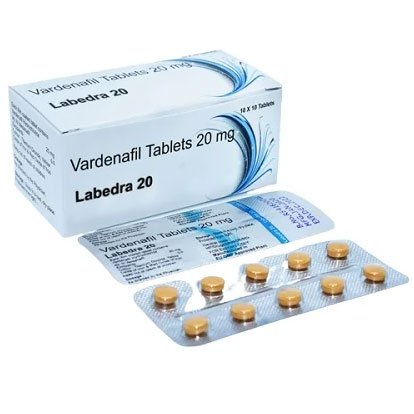Please, activate Compare option to use this widget.
Need help? Call us:
+91 97147 40045
Shopping cart (0)
Subtotal: $0.00
Spend $3,050.00 to get free shipping
Congratulations! You've got free shipping.
Extra Super Zhewitra
$62.00 – $171.00


Snovitra Professional
$63.00 – $269.00
Labedra 20
Brand:
9 people are viewing this product right now
$81.00 – $345.00
Shipping calculated at checkout.
| Labedra 20 | |||
|---|---|---|---|
| Pack Size | Price | Per Unit | Qty |
| 60 Tablets | $1.35 | ||
| 90 Tablets | $1.29 | ||
| 120 Tablets | $1.22 | ||
| 300 Tablets | $1.15 | ||
🔥 Buy More Save More!
Buy 3 items get 5% OFF
on each productBuy 6 items get 10% OFF
on each productBuy 10 items get 15% OFF
on each product
Estimated delivery:5 days
Have any Questions?
Feel free to Get in touch
Guarantee Safe and Secure Payment Checkout
Labedra 20 – Product Description
Brand Name: Labedra
Active Ingredient: Labetalol
Formulation: Tablet
Manufacturer: RSM Enterprises
Packaging: strips of 10 dispersible tablets per pack.
Description:
Labedra 20 is a medication containing Labetalol, a beta-blocker and alpha-blocker used primarily for the management of high blood pressure (hypertension). It works by blocking both beta receptors (which reduce heart rate and blood pressure) and alpha receptors (which help relax blood vessels), thereby improving blood flow and reducing blood pressure.
Labetalol is commonly prescribed for conditions like:
-
Hypertension (High Blood Pressure)
-
Hypertensive emergencies (in some cases)
-
Heart failure (in combination with other treatments)
Indications:
Labedra 20 is indicated for:
-
Hypertension: To reduce high blood pressure in individuals with chronic hypertension.
-
Hypertensive Crisis: In emergency settings, for rapid control of blood pressure.
-
Heart Failure: In combination with other medications to help manage symptoms of heart failure.
Dosage and Administration:
-
Hypertension:
-
Starting dose: Typically, 100 mg twice daily. The dose may be adjusted based on the patient’s response and tolerability.
-
Maintenance dose: The dose can be increased to a maximum of 400 mg per day (divided doses), depending on individual needs.
-
-
Hypertensive Crisis:
-
Labedra 20 may be used intravenously in a hospital setting for rapid reduction of blood pressure under medical supervision.
-
-
Heart Failure (when prescribed):
-
Often started at lower doses (e.g., 12.5 to 25 mg once daily), with gradual titration as per the patient’s response.
-
The tablets should be taken orally with water, with or without food. Do not crush or chew the tablets. Take them at the same time every day for optimal effectiveness.
Side Effects:
Common side effects of Labedra 20 include:
-
Fatigue or dizziness (especially when standing up quickly).
-
Headache.
-
Nausea or vomiting.
-
Diarrhea.
-
Cold extremities (hands or feet).
-
Bradycardia (slow heart rate).
Serious side effects, though less common, may include:
-
Severe dizziness or fainting (signs of low blood pressure).
-
Shortness of breath or difficulty breathing (may indicate heart or lung issues).
-
Severe fatigue or weakness.
-
Swelling in the legs, ankles, or feet.
-
Signs of liver problems: Jaundice (yellowing of the skin/eyes), dark urine, or severe abdominal pain.
Seek immediate medical attention if these serious side effects occur.
Precautions:
-
Heart or Lung Conditions: If you have a history of asthma, COPD, or other heart conditions (like heart failure or slow heart rate), inform your doctor before taking Labedra 20.
-
Liver Impairment: Caution should be exercised in patients with liver problems as Labetalol is metabolized by the liver. Regular monitoring is required.
-
Pregnancy and Breastfeeding: Labedra 20 should only be used during pregnancy if clearly needed, and it is generally not recommended during breastfeeding.
-
Discontinuation: Do not stop taking Labedra 20 abruptly, as this could lead to a sudden increase in blood pressure. Your doctor will provide a tapering schedule if needed.
Drug Interactions:
Labedra 20 may interact with:
-
Other antihypertensive medications (e.g., diuretics, ACE inhibitors) leading to excessive blood pressure lowering.
-
Calcium channel blockers and digoxin, which may increase the risk of bradycardia (slow heart rate).
-
Antiarrhythmic medications may interact and cause irregular heart rhythms.
-
Antidepressants or anti-anxiety medications (such as SSRIs or benzodiazepines) may increase the risk of side effects.
Always inform your healthcare provider of any other medications you’re taking, including over-the-counter drugs, to avoid interactions.
Storage Instructions:
-
Store at room temperature (15°C to 25°C), away from heat and moisture.
-
Keep out of reach of children.
-
Dispose of expired or unused medication properly.
Disclaimer:
This is a general product description and is not a substitute for professional medical advice. Always consult your healthcare provider for personalized recommendations, especially for dosage, interactions, and monitoring during treatment. Regular check-ups and monitoring of blood pressure and heart rate are important during therapy.
Be the first to review “Labedra 20” Cancel reply
Related products
$81.00 – $345.00
| Labedra 20 | |||
|---|---|---|---|
| Pack Size | Price | Per Unit | Qty |
| 60 Tablets | $1.35 | ||
| 90 Tablets | $1.29 | ||
| 120 Tablets | $1.22 | ||
| 300 Tablets | $1.15 | ||
Select options
You may add any content here from XStore Control Panel->Sales booster->Request a quote->Ask a question notification
At sem a enim eu vulputate nullam convallis Iaculis vitae odio faucibus adipiscing urna.









Reviews
There are no reviews yet.